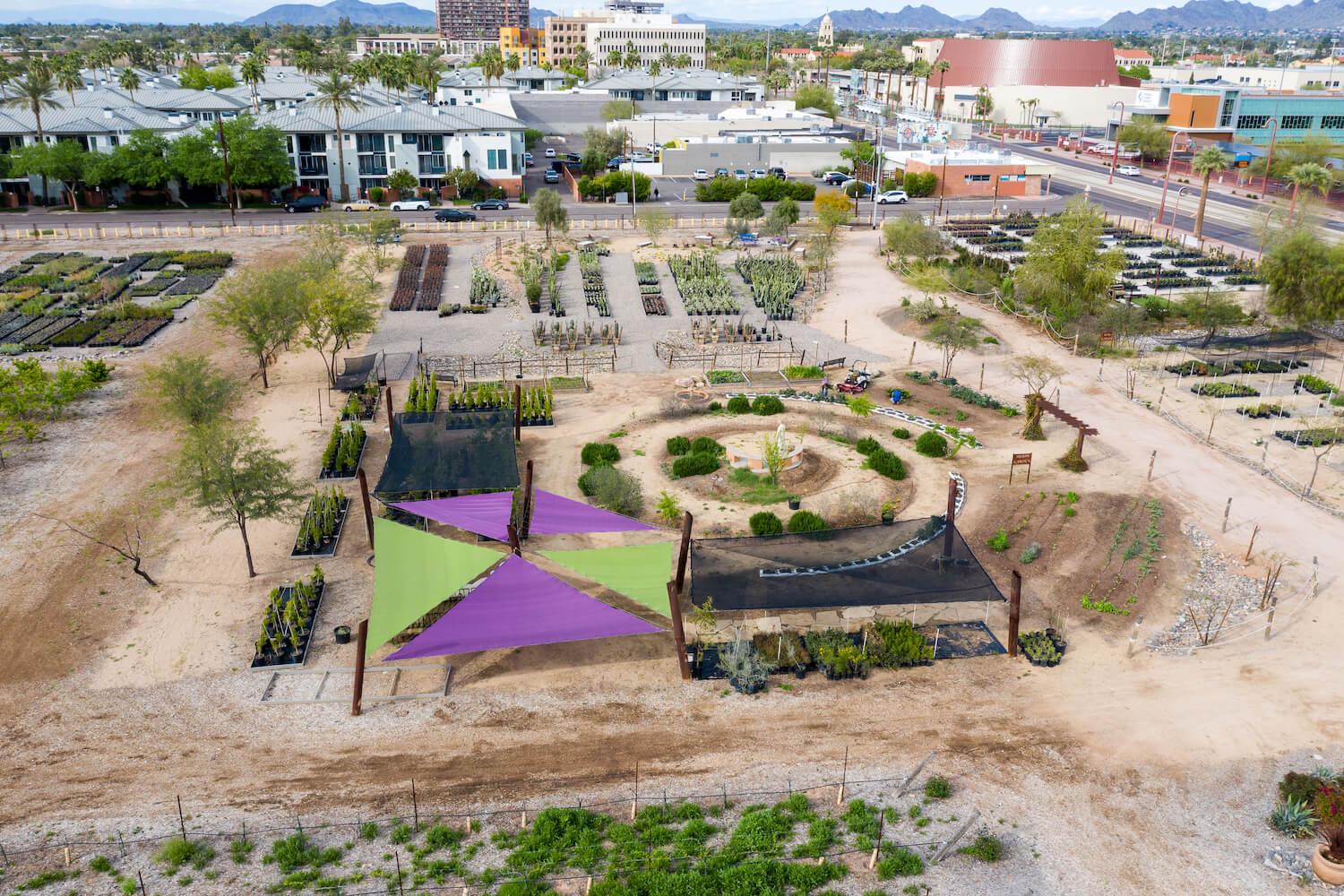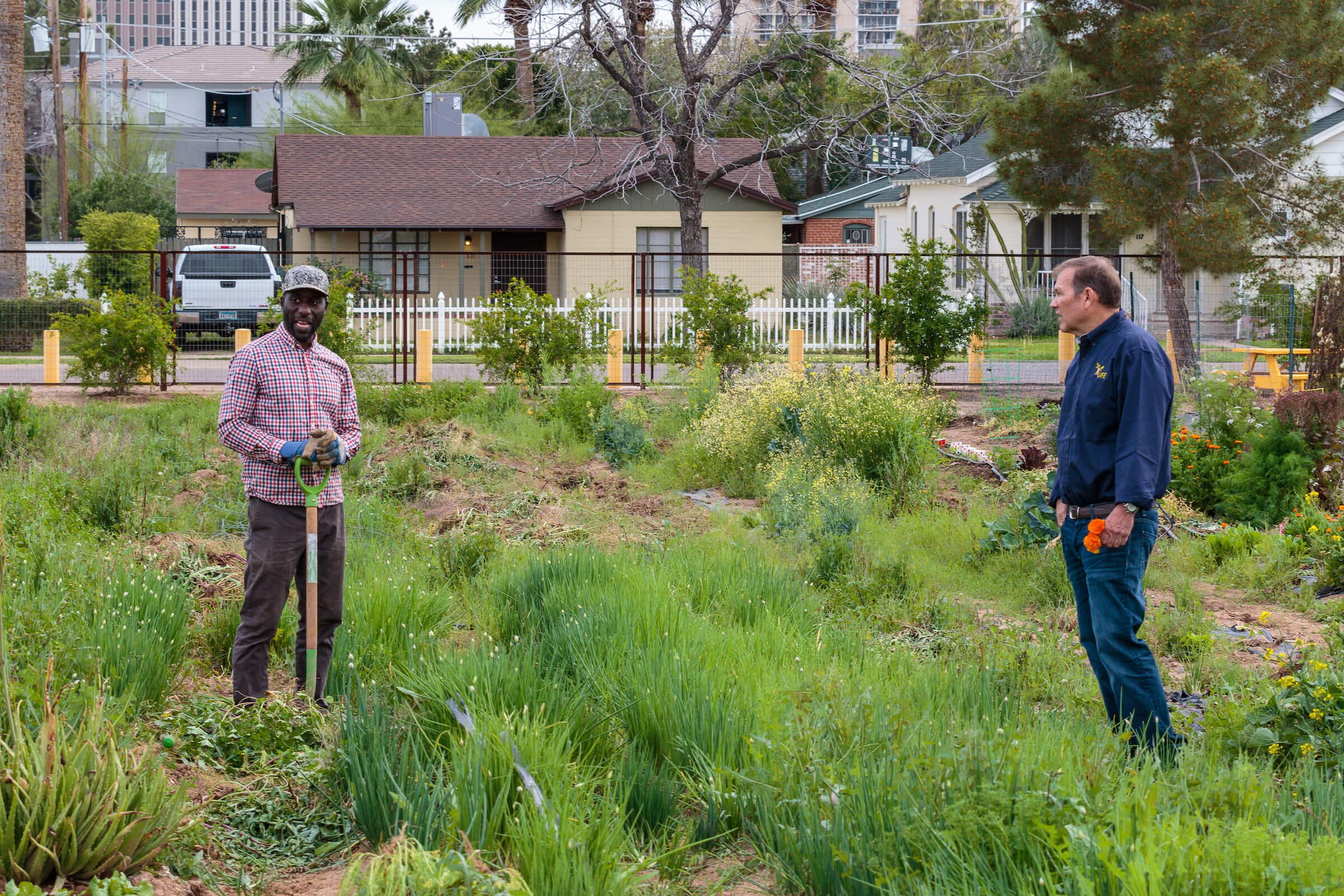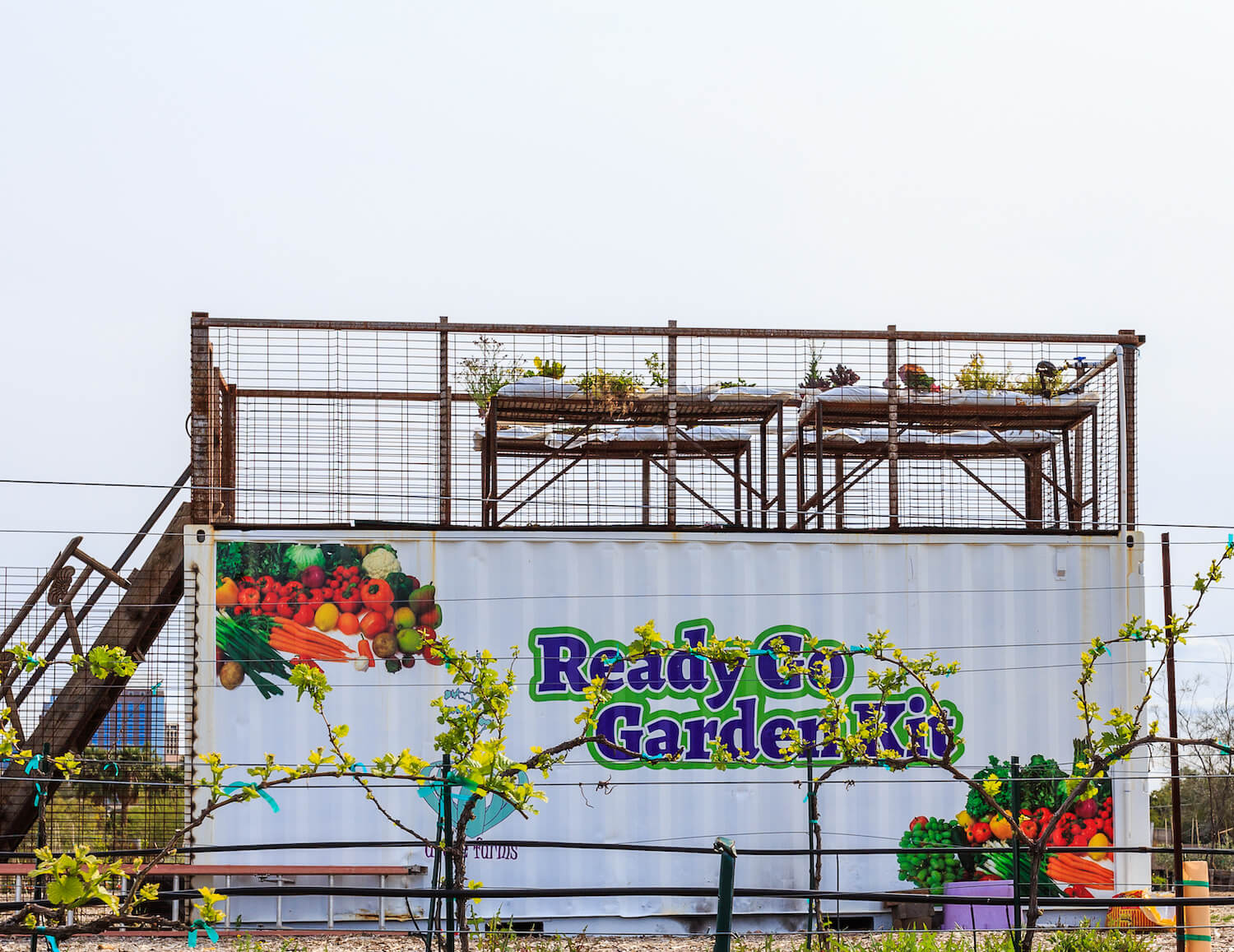Mike McMahon is uniquely qualified for the mission he’s set for himself. An urban farmer, sustainability expert, and the founder of Agave Environmental Contracting
LLC, he is expanding his brand and empowering the Downtown Phoenix and Maricopa County communities in a unique way in the process.
McMahon’s latest entity, Urban Farming Education (UFE), is changing food scarcity through education. It mobilizes opportunities for agriculture throughout the Valley by introducing subcommunities to ecotherapy, farm business education, and sustainable practices to adopt when growing food organically. The company’s work thus far has already inspired partnerships with a number of nonprofits, schools, and local organizations.
Though as our world continues to navigate life amid the COVID-19 outbreak, farming education and sustainable gardening seem particularly relevant now, perhaps more so than ever before.
Where do you think your affinity for farming and gardening began?
One of my earliest memories was watching and then learning to love gardening with my father. My Uncle Bud had a huge, old cherry tree in his backyard that we would pick cherries from, remove the pits, and my mother would bake cherry pies. My father later transplanted a stick from my uncle’s cherry tree–which I now know the correct term for is ‘cutting’–that eventually grew very large in our backyard. He also transplanted maples and oaks. Produce coming from nature was always the most amazing thing I have ever experienced.
By the time I was 12, I was taking care of 17 yards in my neighborhood. Most of this work consisted of mowing lawns, but all the houses had planter areas. In some, I was able to resurrect some vegetable gardens that the owners had long ago neglected. I became a farm spy at my own house, watching my father, and casually asking questions without showing that I cared that much or letting on to him what I was doing.
How did Agave Environmental Contracting, LLC begin?
After I graduated from the State University of New York at Buffalo, I immediately moved out west to Phoenix. My undergraduate degree in the engineering school was based on holistic problem-solving and environmental design. I wasn’t sure what I would do with that degree, and I am a little surprised now to see it was exactly what I needed to do all the things I am involved with today. My first few years in Phoenix were difficult. I eventually went back to graduate school and worked as a landscaper. I had no intention of working out in the brutal heat of the desert for a career; it was simply a means to an end.
However, by 1990, I was ready to start my own company with a partner—Agave Environmental Contracting, Inc. Agave eventually grew to be the largest landscape company in Arizona. We eventually spread out to Southern California, with a little over 700 employees.
In 2015, we were approached by a representative of a land owner in Central Phoenix who was looking for a company to lease his property for a low rate if we could use it for agriculture. The owner had been holding the land for several decades and was waiting to either sell or develop it at a future date. We took the property, and after meeting with the City of Phoenix, realized changing zoning to agriculture was not
possible and the only temporary land use approval we could get for our purposes would be for a “community garden.”
At that time, we only entertained having a tree, plant, and cactus nursery for our own landscape projects. Since we had so much property (17 acres), we decided to try our hand at growing vegetables. We hired a few master gardeners and grew vegetables. There were a lot of lessons that came from mistakes.
The first few years [of Agave Farms
] were about trying new things on the property and learning about land development on the cheap. In an attempt to keep within City of Phoenix guidelines, we allowed public access and decided to allow any nonprofit to use our farm for meetings, workshops and fundraiser events. An unintended consequence of this was finding out about how many less fortunate people we had in our community, and how pervasive social issues are to what I call the “cycle of doom.” This cycle starts with “unwanted” people and gets worse from there. As I got closer to the people on the front lines, I could not reconcile my conscience with how global problems were all around me in my own city and how I was oblivious to them.
What inspired you to start Urban Farming Education (UFE)?
In the process of trying many business models for Agave Farms and working with our new Ready-Go-Garden-Bag System
, I realized that one central location was not going to work. Homeless shelters, schools, foster homes, domestic-violence shelters, facilities for the disabled and elderly were dispersed all around our county, and most of the residents were not mobile. It was time to set up our own nonprofit,
which would be a little different from most others. We would help people through a network of organizations that were already established, and we would build gardens which would take unused space at their facilities.
The new entity would be called Urban Farming Education (UFE). Each facility would have its own priority and agenda. Some spaces would be small, and some large. Some would want us to incorporate the garden for kids, and some would want
outdoor shaded eating and meeting areas. Some would want an orchard or vineyard. Some might have non-potable canal or well water. Some might need a holding pond or tank, and need pumps and filters and irrigation. None of these presented any challenge for our team. After years of building large projects
like parks, golf courses, subdivision roads, freeways, gardens and urban farms, we had found our purpose. We were also a maintenance company used to stewarding and making spaces sustainable.
Setting up Ready-Go-Garden Systems
In the process of setting up UFE and also by having sold and installed many Ready-Go-Garden Systems, I realize how important it would be to have a manual/user guide which would be simple and straightforward in helping organizations determine what their urban farm/community garden’s purpose would be and how they could design programs around the garden to help them achieve their goals. In addition to transforming space into a personalized venue, the garden’s functionality or purpose fall into one or all of the following four reasons:
• Sustainability (supplement the community’s diet with
fresh produce);
• Education (schools and all those who want to learn about
food and biology);
• Ecotherapy (this is the spiritual side of working with
nature);
• Farm Business Model (based on scale, it is a great way to
introduce people to business).
What have you accomplished with UFE thus far? And what are your future goals?
We have built seven gardens to date, including at three schools, one foster facility, two domestic violence shelters, and one kitchen in a church that feeds the homeless. They are producing produce and a sense of community. We have set a goal of building 1,000 more gardens in the next five years. We also realize it is easy to build any facility, but what is more important is building a program around the garden that aligns its purpose around the mission of the organizations we serve. Ultimately, we are looking for our gardens and programs to be perpetual and sustainable themselves.
Keep up with all of Green Living‘s content by visiting our website.









